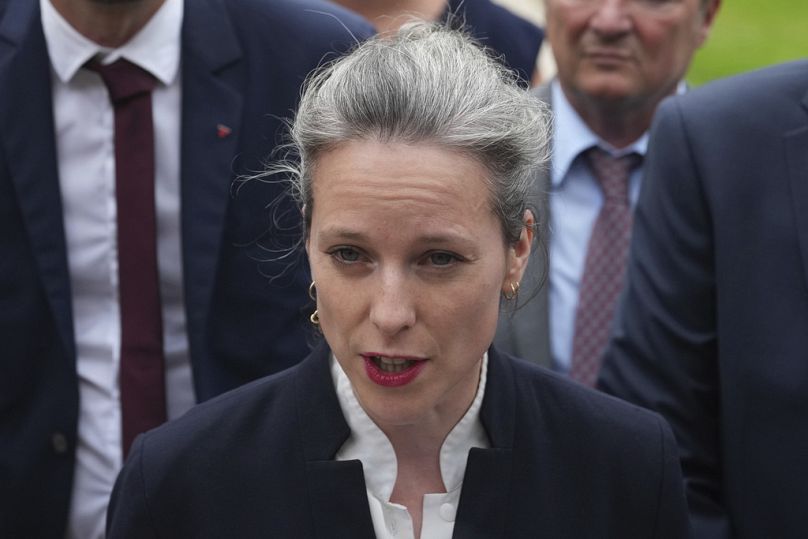French President Emmanuel Macron will hold meetings with key leaders of the country's main political parties on Friday and Monday to "keep moving towards the broadest and most stable majority possible," according to the Elysée Palace.
Could France's political crisis be soon resolved through dialogue? Six weeks after the second round of the legislative elections, French President Emmanuel Macron, who had requested an “Olympic truce”, welcomes key political leaders from various parties to discuss naming a future government and prime minister.
The left-wing coalition New Popular Front (NFP), which won the most seats in the parliamentary elections but failed to achieve the 289-seat absolute majority, opened the consultations this Friday morning at the Elysée presidential palace.
The NFP's candidate for Prime minister, civil servant and economist Lucie Castets, said she is “ready” to “build a coalition” with other political parties after the meeting with Macron.
Lucie Castets called out Macron's "temptation that still seems present for the President to form his own government," she told a group of reporters including Euronews.
Before the Paris Olympics, Macron had rejected Castets as a potential candidate to lead the nation's future government which angered the left-wing coalition.
In the afternoon, Macron will receive his centrist bloc, followed by the conservative right-wing party "The Republican Right" (ex-LR).
The latter's leader Laurent Wauquiez said his party would not join any coalition and would "immediately vote for a motion of censure" against a government which includes ministers from the hard-left France Unbowed (LFI) party.
Far-right leaders Jordan Bardella and Marine Le Pen from the National Rally party (RN) will be invited to the presidential palace on Monday morning.
Following these talks, Emmanuel Macron will also consult with the president of the National Assembly and the president of the Senate.
A new prime minister will therefore not be appointed until Tuesday, said the Élysée Palace, without giving further details.
A united front?
Emmanuel Macron wants “a fair, sincere dialogue, and for these consultations to be useful to the country”, said his office.
Taking advantage of the fact that one hundred seats separate the NFP from an absolute majority, Macron seems to be ruling out the possibility of appointing Lucie Castets to try to create an alternative majority, for example with some of the right and moderate socialists.
Both the right and the far-right are threatening to bring down a left-wing government if ministers from the ranks of hard-left France Unbowed (LFI) are appointed.
The left-wing NFP coalition made up of France Unbowed, the Socialists, the Communists and the Greens assured that they are “ready to govern,” even without an absolute majority.
In a letter to the French, the NFP criticised “the president's inaction”, which it deems “serious and dangerous”.
The different parties of the NFP do not have the same strategies and have been bickering since their creation after Macron dissolved parliament.
The France Unbowed party led by the firebrand Jean-Luc Mélénchon is threatening to start impeachment procedures if Macron refuses to appoint Lucie Castets as prime minister. A move that was criticised by the Socialist Party and the Greens.
Who could become the next prime minister?
Lucie Castets came 21st (out of 35 personalities) in a Harris Interactive poll commissioned by the French newspaper Challenges on 21 August.
According to Castets and the left-wing parties who have propelled her to prominence, the poll reflects that she is rather unknown to the general public, having never held a single mandate.
She garnered 17% of positive opinions, but 40% of those questioned said they “didn't know her well enough to give an opinion.”
Far-right MEP Jordan Bardella came out as second favourite in the poll with 39%, followed by Xavier Bertrand (32%), a former right-wing minister.
According to the poll, 40% of those surveyed said they believe the outgoing Prime Minister Gabriel Attal is the best suited to continue leading the country's government.












